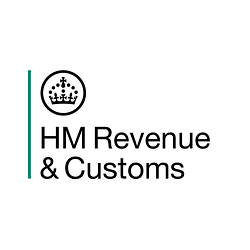
Press release -
Report changes, tax credit claimants told
Tax credits claimants are reminded by HM Revenue and Customs (HMRC) today to report changes in their circumstances - or they may receive more money than they are entitled to.
They would have to pay this back and might face a financial penalty.
From April this year, any income increase for a household of more than £5,000 for the tax year will reduce a claimant’s tax credits award for the 2013-14 tax year. This amount has fallen from the previous figure of £10,000, after a Budget announcement in 2010.
Claimants need to let HMRC know of any changes in their circumstances that they haven’t already reported during the year. The changes could be about their working hours, childcare costs, living arrangements or income. They need to report the changes immediately and ensure the details they provide are correct.
HMRC’s Director General of Benefits and Credits, Nick Lodge, said:
“Many people forget or fail to tell us about important changes – such as having a partner move in or an increase in income – which will affect the amount of money they receive. This could mean that they don’t get all the money they are entitled to. Or they could receive money that they have to pay back.
“We therefore urge them to report changes promptly, and make sure all details are accurate.”
Notes to Editors
1. The tax credits helpline number is 0345 300 3900.
2. The income increase disregard will reduce from £10,000 to £5,000 from April 2013 – http://www.hmrc.gov.uk/manuals/ccmmanual/CCM1135.htm
3. All changes to income, regardless of the amount, need to be reported to HMRC. Although an income change of less than £5,000 may not affect current year awards, provisional payments from 6 April the following year would not be based on up-to-date figures, which could cause an overpayment, which will have to be paid back. In some instances HMRC will charge a penalty if claimants do not send the information they are asked for or are careless or dishonest in making their claim.
4. HMRC’s flickr channel www.flickr.com/hmrcgovuk
5. Follow HMRC on Twitter @HMRCgovuk
Case studies
1. Miss Smith lives alone with her child. However, she has been joined by her partner in the house. She will need to report this change to HMRC or she will receive more money as a single applicant than she is entitled to, and will have to pay this money back.
2. Mr Jones was working 30 hours a week and receiving £18,000. After a promotion, he has been awarded a pay rise to £18,750. As the amount is less than the £5,000 income increase disregard, the change will not affect his current year award. However, he needs to tell HMRC about the change or his payments in the following tax year will be more than he is entitled to, and he will accrue an overpayment, which he will have to pay back.
3. Miss Patel was living alone with her teenage son, who has decided not to continue in education or training. However, after illness, her mother now lives in the same household. Miss Patel does not need to tell HMRC about her mother as they are not partners. Miss Patel should tell HMRC, however, about her son as she will no longer be eligible to receive Child Benefit and tax credits payments for him.
4. Mr and Mrs Peterson have one child and Mr Peterson works 25 hours a week. Mrs Peterson takes up employment for 15 hours a week with an annual salary of £6,500. Mr and Mrs Peterson need to report this change to HMRC or they may receive more payments than they are entitled to. As their income has increased over the £5,000 threshold, their entitlement to tax credits will fall. However, Mrs Peterson’s increase in hours will now entitle them to the 30-hour premium, which they wouldn’t have received had they not notified HMRC.
Topics
Categories
Issued by HM Revenue & Customs Press Office
HM Revenue & Customs (HMRC) is the UK’s tax authority.
HMRC is responsible for making sure that the money is available to fund the UK’s public services and for helping families and individuals with targeted financial support.

